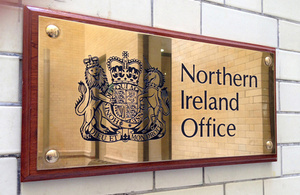Singapore, 25 November 2022… The United Kingdom (UK) and Singapore held the 7th UK-Singapore Financial Dialogue in Singapore today. Both countries renewed their commitment to deepening the UK-Singapore Financial Partnership that was agreed in 2021, discussed mutual priorities such as sustainable finance, FinTech and innovation, and agreed on further cooperation in these areas.
At the Financial Dialogue, the UK and Singapore agreed on a Memorandum of Understanding on the UK-Singapore FinTech Bridge[1]. The FinTech Bridge seeks to support continued growth, investment, and technological innovation in this sector, building on active interest of FinTech players in the areas of payments, RegTech and wealth management. Both countries strongly welcomed this deepened co-operation on FinTech and the opportunities the industry can deliver in relation to financial inclusion, enhanced innovation, and improved outcomes for consumers.
Both countries recognised the importance of the UK-Singapore Digital Economy Agreement (DEA) signed earlier this year, and the principle of the free flow of data which is enshrined in it. They noted the significance of this agreement in underpinning the development of respective FinTech sectors and supporting future digital and innovation partnerships.
The UK and Singapore discussed their joint interests in sustainable finance as well as FinTech and innovation.
- Sustainable Finance: Both countries noted continued momentum at COP27 to focus on implementation, including the need to mobilise capital to developing economies to finance the transition to net zero, using innovative approaches such as blended finance and carbon markets.
Transition finance –
The UK and Singapore recognised the importance of transition plans and pathways to achieve the Paris Agreement’s goal of limiting global temperature increase to 1.5°C from pre-industrial levels. Both agreed to work together on transition finance. As a first step, the two countries agreed to explore collaboration opportunities, working with partners such as the UK Transition Plan Taskforce and the Glasgow Financial Alliance for Net Zero’s (GFANZ) Asia Pacific office, which is based in Singapore, to drive international consistency in design and disclosure of transition plans.
Disclosure standards –
The UK and Singapore affirmed their strong commitment to the implementation of International Sustainability Standards Board (ISSB) disclosure standards. Both countries will continue to work with the International Organization of Securities Commissions (IOSCO), the ISSB and other international organisations to implement a comprehensive global baseline of sustainability-related disclosure standards that is interoperable with jurisdiction-specific requirements. Both countries also commit to phase in mandatory climate-related financial disclosures that provide consistent, comparable and decision-useful information for market participants and financial authorities.
Greenwashing –
The UK and Singapore discussed efforts to combat greenwashing, including in relation to sustainability disclosures and sustainable investment product labels. It was agreed that regulators should continue discussing how to adopt a global, coherent, and co-ordinated approach on regulatory oversight of ESG ratings and data products providers, grounded in IOSCO’s recommendations. Both countries recognised the importance of comparable and reliable data to underpin the net zero transition, enabled by technology solutions such as Project Greenprint, and agreed to explore further collaboration opportunities in this area.
Natural capital and biodiversity –
Both countries agreed on the importance of a globally consistent framework for nature-based disclosures and exchanged views on how the efforts of the Taskforce on Nature-Related Financial Disclosures (TNFD) can contribute to the ISSB’s global baseline. Both countries agreed to collaborate to build capacity and understanding of the potential for nature loss and degradation to generate financial risks and cause adverse impacts to business and society, including through engaging with academia such as the University of Cambridge Institute for Sustainability Leadership (CISL) and the Singapore Green Finance Centre, co-managed by Imperial College Business School and Singapore Management University (SMU).
- FinTech and Innovation: The UK and Singapore exchanged views on recent developments in the FinTech sector, including in relation to crypto-assets, and agreed on a number of priority areas for further co-operation.
Crypto-assets sector –
Both countries shared their latest assessments of market developments, opportunities, trends, and longer-term expectations for the crypto-assets sector. They also discussed risks and challenges relating to financial stability, regulatory arbitrage, and shared their progress in strengthening rules on consumer protection and developing the regulation of stablecoins. There was strong agreement on the need to support the safe development of a digital assets ecosystem while ensuring that risks posed by digital assets are consistently managed. Both countries will continue to actively participate in the shaping of robust global regulatory practices through engagement within international multilateral fora such as the Financial Stability Board (FSB), the Committee on Payments and Market Infrastructures (CPMI) and IOSCO.
E-wallets and digital banking –
Singapore provided updates on the progress of its review of e-wallet caps and expected next steps. Both countries discussed the recently released consultation, with the UK providing views on the key proposals. Singapore also updated on the new digital banks that recently launched their operations in Singapore.
The two countries agreed to a roadmap for engagements in sustainable finance, FinTech and innovation, and other areas of mutual interest, leading up to the next Dialogue scheduled to take place in London in 2023.
The UK and Singapore discussed their latest analysis of financial market developments and economic outlook, including how Russia’s invasion of Ukraine has impacted the global economy. Both countries agreed on the usefulness of ongoing exchange of information on this topic, including on financial sanctions.
The Financial Dialogue was co-chaired by Deputy Managing Director (Markets and Development) of the Monetary Authority of Singapore (MAS), Mr Leong Sing Chiong, and Director General (Financial Services) of HM Treasury (HMT), Ms Gwyneth Nurse. Senior officials from MAS, HMT, the Department for International Trade, Bank of England (BoE), Financial Conduct Authority (FCA), and the British High Commission in Singapore attended the Dialogue.
Two industry-led UK-Singapore business roundtables on sustainable finance and FinTech took place on 24 November 2022. Industry participants from both countries participated in this discussion.
a. The sustainable finance Roundtable examined the implementation challenges faced by corporates in meeting their net zero targets, and how the financial industry could help to address these challenges.
b. The FinTech Roundtable discussed the opportunities and challenges faced by FinTech firms, and how these firms could better access overseas markets, including by partnering with financial institutions.
About the Monetary Authority of Singapore
The Monetary Authority of Singapore (MAS) is Singapore’s central bank and integrated financial regulator. As a central bank, MAS promotes sustained, non-inflationary economic growth through the conduct of monetary policy and close macroeconomic surveillance and analysis. It manages Singapore’s exchange rate, official foreign reserves, and liquidity in the banking sector. As an integrated financial supervisor, MAS fosters a sound financial services sector through its prudential oversight of all financial institutions in Singapore – banks, insurers, capital market intermediaries, financial advisors and financial market infrastructures. It is also responsible for well-functioning financial markets, sound conduct, and investor education. MAS also works with the financial industry to promote Singapore as a dynamic international financial centre. It facilitates the development of infrastructure, adoption of technology, and upgrading of skills in the financial industry.
About HM Treasury
HM Treasury is the UK government’s economic and finance ministry, maintaining control over public spending, setting the direction of the UK’s economic policy and working to achieve strong and sustainable economic growth.
The department is responsible for:
- public spending: including departmental spending, public sector pay and pension, annually managed expenditure (AME) and welfare policy, and capital investment
- financial services policy: including banking and financial services regulation, financial stability, and ensuring competitiveness in the City
- strategic oversight of the UK tax system: including direct, indirect, business, property, personal tax, and corporation tax
- the delivery of infrastructure projects across the public sector and facilitating private sector investment into UK infrastructure
- ensuring the economy is growing sustainably
[1] The FinTech Bridge provides a structured engagement that will aid the development of policy actions, enhance assessments of emerging issues, such as the development of distributed ledger technologies and data sharing, and support trade and investment flows between our respective markets.



